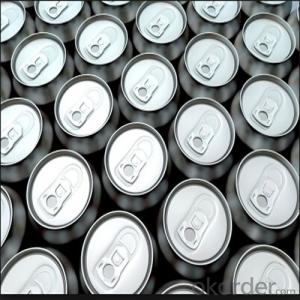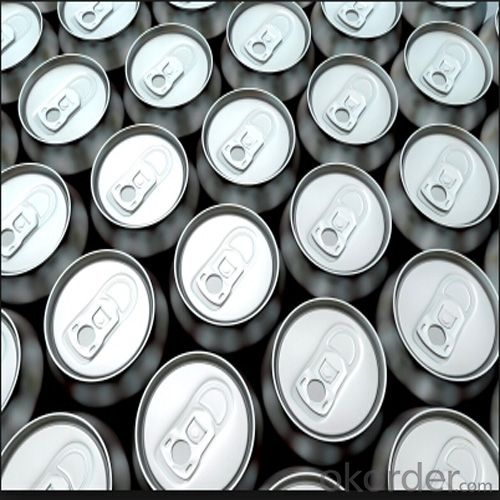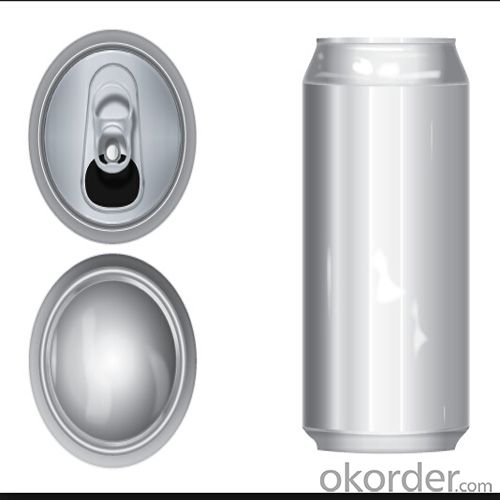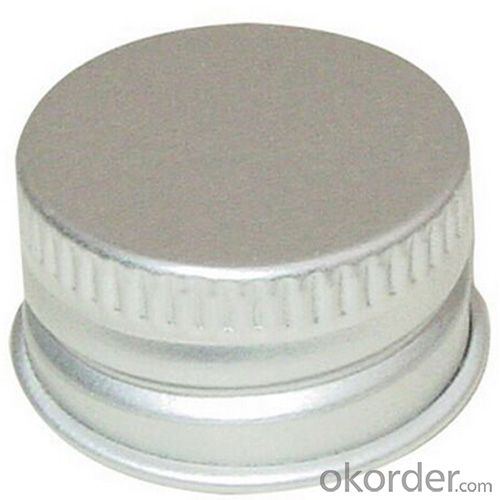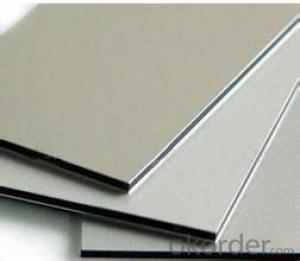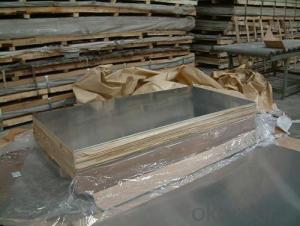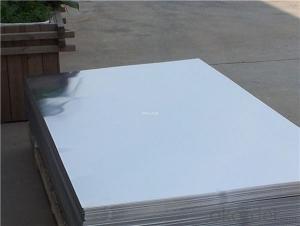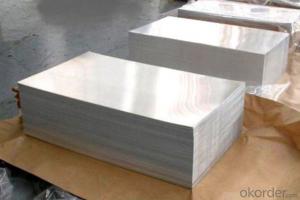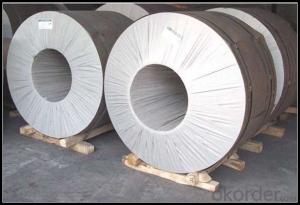8 1/2 X 11 Sheets Aluminum for Inkjet - Closure Aluminum Sheet for Bottle Caps AA1060
- Loading Port:
- Shanghai
- Payment Terms:
- TT OR LC
- Min Order Qty:
- 5 m.t.
- Supply Capability:
- 10000 m.t./month
OKorder Service Pledge
OKorder Financial Service
You Might Also Like
Specification
1.Structure of Closure Aluminum Sheet for Bottle Caps AA1060 Description:
Aluminum Sheet for bottle closure is rolled to very fine tolerances to yield more closure per tonne of stock and to allow uninterrupted operation of high-speed, multiple-cavity presses. Such closure sheet its strength, high formability, low Earring and printable surfaces make it ideal for pilfer-proof caps and vial seal
The broad categories of ROPP closures can be defined as Plain Printed Caps, Top Embossed Caps, Knurl Embossed Chamfered Caps, Side Embossed Chamfered Caps, Deep Drawn Caps, Extra Deep Drawn Side dry offset printed caps etc
2.Main Features of Closure Aluminum Sheet for Bottle Caps AA1060:
Reasonable and stable chemical composition
Accurate tolerance
Nice mechanical property
Standards: EN, ASTM and JIS
3. Closure Aluminum Sheet for Bottle Caps AA1060 Images:
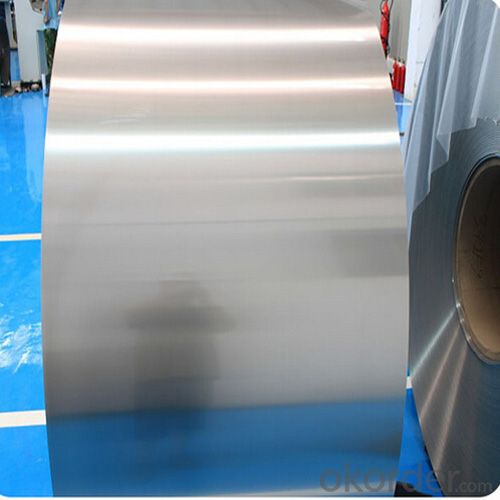
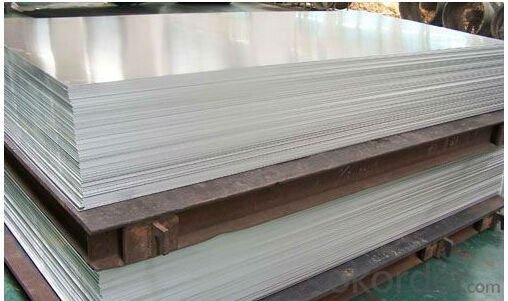
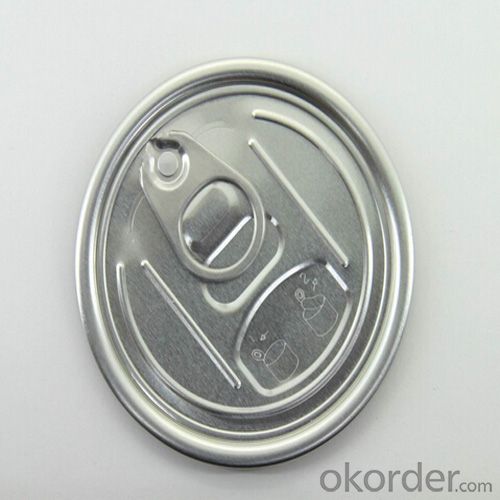
4. Bottle Cap Aluminium Sheet and Coil Specification:
| Product | Alloy | Temper | Specification | |
| Thickness (mm) | Width (mm) | |||
| Auminium sheet/plate/strip | 1,3,5,8 series | O, H1X, H2X | ≥0.1 | 800-1700 |
| Curtain wall | 1,3,5,8 series | H12, H22 H24, H26, O | 0.2-4.0 | 800-1700 |
| PS plate | 1050,1060, 1070 | H14, H18, H19 | 0.13-0.3 | 1000-1500 |
| Aluminum foil stock | 1,3,5,8 series | O, H1X, H2X | 0.2-0.5 | 800-1700 |
| Decorate material | 1,3 series | H12, H22 H24, H26 | 0.1-0.5 | 800-1650 |
| Lips cap stock | 1060, 8011 5052, 5182 | H16, H18 H19, H22 H24, H26 | 0.15-0.3 | 1700 |
| Aluminum composite panel | 1100, 3003, 8011 | H14, H16 H18, H26 | 0.2-0.35 | 1700 |
5.FAQ
1.Q: What about leadtime ?
A: Normally the leadtime is 60days after we receive the deposit and confirm the details. All the press machines we use is the best quality in China Yangli brand. The press machine leadtime from Yangli is 50days, the best leadtime we can give is 60days.
2.Q: What's the lead time for moulds?
A: Normally the mould leadtime is 45 days after we confirm all the details with customer. Our professional mechanical enginners from Austria will design the mould according to the samples from customer, or by the specifications offered by customers.
3.Q:What kinds of mould you can make? and what is your strong point for the moulds?
A: we can make wrinkle wall mould and smooth wall mould both. For wrinkle wall mould we can make, 79" pan, fish pan, bbq pan. For smooth wall mould we can make muffin cup, and cake cup, tar cup,etc. We can also make 2 or 3 portion conatiner moulds as long as you offer us sample or specifications. Our strong points are all our moulds are WEDMLS cut, which makes the mould more accurate and precise. Important materials likestainless steel parts we make in Austria. We also recut after heat treatment, which most of makers do not take this process..
- Q: Are aluminum sheets suitable for wastewater treatment applications?
- Yes, aluminum sheets are suitable for wastewater treatment applications. Aluminum is a versatile material that offers several benefits for use in wastewater treatment processes. Firstly, aluminum sheets are highly resistant to corrosion, which is essential in the harsh and corrosive environment of wastewater treatment plants. This resistance ensures that the aluminum sheets will not deteriorate or react with the chemicals present in the wastewater, thereby maintaining their structural integrity. Additionally, aluminum sheets have excellent thermal conductivity properties, allowing for efficient heat transfer in processes like wastewater disinfection. This thermal conductivity aids in the effective removal of harmful bacteria and contaminants from the wastewater, enhancing the overall treatment process. Furthermore, aluminum sheets are lightweight yet durable, making them easy to handle and install in wastewater treatment systems. This characteristic also contributes to their cost-effectiveness, as they require less maintenance and are less prone to damage compared to other materials. Moreover, aluminum is a sustainable material and can be recycled, reducing the environmental impact of wastewater treatment applications. Recycling aluminum sheets can help conserve natural resources and reduce energy consumption, making it an environmentally friendly choice. In conclusion, aluminum sheets offer numerous advantages for wastewater treatment applications. Their corrosion resistance, thermal conductivity, lightweight nature, and recyclability make them a suitable and efficient material for use in wastewater treatment processes.
- Q: I have heard that drinking from aluminum cans is bad for our health. However, I have learned that today's 'aluminum' cans are actually more like a plastic can due to all the coatings, etc. Do we really have any risks associated with regular cans?
- Aluminum cans have a thin plastic lining. This lining prevents the leeching of aluminum into the liquid it contains. The big health scare over aluminum was over research done on Alzheimer's disease. Autopsies revealed a higher concentration of aluminum in the brain of some patients with Alzheimer's. It is unknown whether aluminum was a possible culprit, or the diseased tissue for some reason just held onto more aluminum. Further research has not been able to duplicate these results; autopsies of some patients show no increased levels of aluminum. [1], [2], [3], [4] Aluminum toxicity is rare and usually found in patients with renal failure. [5] The amount of aluminum you would be exposed to even if cans were not coated wouldn't cause you any harm.
- Q: Can aluminum sheet be used for electrical connectors?
- Yes, aluminum sheet can be used for electrical connectors. Aluminum is a good conductor of electricity and is widely used in various electrical applications, including connectors. It is lightweight, inexpensive, and has good thermal and electrical conductivity properties. However, it is worth noting that aluminum has a lower electrical conductivity compared to copper, which is the most commonly used material for electrical connectors. Therefore, aluminum connectors may have higher resistance and lower current-carrying capacity than copper connectors. Nonetheless, proper design and engineering can overcome these limitations, making aluminum sheet a viable option for electrical connectors in certain applications.
- Q: What are the different methods of surface protection for outdoor aluminum sheet?
- There are several methods of surface protection for outdoor aluminum sheet to ensure its durability and longevity. 1. Anodizing: This is one of the most common methods used to protect aluminum surfaces. Anodizing creates a protective oxide layer on the surface, making it more resistant to corrosion, abrasion, and UV rays. It also improves the appearance of the aluminum sheet by providing a range of colors and finishes. 2. Powder coating: Powder coating involves applying a dry powder to the aluminum sheet and then baking it in an oven to create a hard, protective coating. This method provides excellent resistance to weathering, corrosion, and chemicals. It is also available in various colors and finishes. 3. Paint coating: Applying a paint coating is another effective way to protect outdoor aluminum sheets. The paint forms a barrier between the aluminum surface and the environment, preventing corrosion and enhancing aesthetics. It is important to use a high-quality paint specifically designed for aluminum to ensure proper adhesion and durability. 4. Clear coating: Clear coating is mainly used to protect the natural appearance of aluminum while providing a layer of protection against corrosion, oxidation, and UV rays. It is often applied after anodizing or polishing the aluminum sheet. 5. Laminating: Laminating involves adhering a protective film or sheet onto the aluminum surface. This method provides excellent resistance to scratches, abrasion, and UV rays. It is commonly used in applications where the aluminum sheet is subjected to heavy wear and tear. 6. Chemical conversion coating: Chemical conversion coatings, such as chromate conversion coating or phosphating, are used to improve the corrosion resistance of aluminum sheets. These coatings chemically react with the surface to create a protective layer that inhibits corrosion. It is important to consider the specific requirements and environmental conditions when choosing a method of surface protection for outdoor aluminum sheets. Each method has its own advantages and limitations, and the choice should be based on factors such as durability, appearance, cost, and maintenance requirements.
- Q: Is this aluminium plate ceiling dark keel or bright keel?
- Although as upstairs said, now integrated ceiling are dark fitted keel. Can see your picture, elevation difference also has, should be bright install keel. This requires manufacturers and roof distribution. It is not important to open and install, but the key is where to enter such plates.If you think about the effect, consider getting the information from the scene.
- Q: What kind of aluminum sheet can be bent with five millimeters?
- Aluminum plate can not be called grade, I give the high-speed rail processing bending sound barrier is aluminum, bending effect is very good.
- Q: Calculate the mass in grams of Iodine (I2) that will react completely with 20.4 g of aluminum to form aluminum oxide (AlL3)
- actually the guy before me did it right but made a mistake at one point 0.07 mole is the # of moles of Al which needs to be changed to moles of product, and then back to find mole of iodide. once thats found then you can use the MW to change it to grams.
- Q: I am trying to find a BRUSH ON type glue to adhere aluminium foil to a plastic model. scotch super 77 works great but dries way to fast and blows small pieces all over. white glue just dont work and superglue eats the plastic. I could use some help
- Gluing Aluminum
- Q: What are some common applications of aluminum sheets?
- Some common applications of aluminum sheets include roofing, siding, automotive parts, aircraft bodies, kitchen utensils, and electronic casings.
- Q: What unique cleaning techniques should be employed when cleaning aluminum sheets?
- <p>Yes, there are special cleaning methods for aluminum sheets. It's important to use a gentle, non-abrasive cleaner to avoid scratching the surface. Avoid using harsh chemicals or abrasive materials that can damage the aluminum. Instead, use a soft cloth or sponge with a mild detergent solution. Rinse thoroughly with water to remove any cleaning residue, as some detergents can leave a film on the aluminum. Dry the aluminum sheet immediately after rinsing to prevent water spots. Regular cleaning can help maintain the appearance and longevity of aluminum sheets.</p>
Send your message to us
8 1/2 X 11 Sheets Aluminum for Inkjet - Closure Aluminum Sheet for Bottle Caps AA1060
- Loading Port:
- Shanghai
- Payment Terms:
- TT OR LC
- Min Order Qty:
- 5 m.t.
- Supply Capability:
- 10000 m.t./month
OKorder Service Pledge
OKorder Financial Service
Similar products
Hot products
Hot Searches
Related keywords
